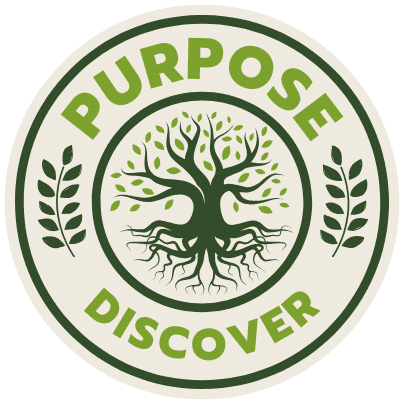Ever found yourself staring at the rubble of your dreams, wondering how the hell you got here? That place where everything you planned seems to have just… fallen apart? It’s brutal. But here’s a little secret not many people admit: those hard seasons, the ones that feel like a cosmic joke, often have a way of clearing the fog. They don’t just break you down; they crack open a space for something genuinely clearer to come through. If you’re wrestling with the idea of your calling, or what you’re “meant” to do, these tough times might just be the unexpected flashlight you need.
The thing about setbacks is that they’re messy. Life doesn’t hand them out with instruction manuals. One day you’re cruising, confident in your path, and then bam—something big shifts. Maybe you lost a job, a relationship imploded, or your health took a nosedive. Whatever it is, it pushes you into a corner, and suddenly, your “assignment” in life feels fuzzy or nonexistent. But that blur? It’s often the beginning of better clarity, not the end of the road.
Hard Seasons Rip Off the Masks
There’s a weird comfort in clinging to certain identities. “I’m the reliable one,” “I’m the creative type,” “I’m the breadwinner.” But when life slams you sideways, those labels fall flat. They don’t protect you anymore. Your confidence? Shaken. Your sense of purpose? Questioned. And that’s actually a good thing.
When the masks fall, you start asking real questions. Not the surface-level, “What do I want for dinner?” kind, but the deep, soul-searching kind: Who am I without my job title? What do I believe in when everything feels uncertain? Why did I want this in the first place? Hard seasons demand this kind of reckoning. They’re like a brutal truth serum, forcing you to confront what you really value and what was just noise.
It’s in that stripped-down vulnerability that your true calling starts to whisper. Because it’s not about the accolades or the paycheck. It’s about what makes you come alive even when no one’s watching. That’s the gold buried under the rubble.
The Detox from Distraction
Here’s something I’ve noticed: When life is smooth, it’s easy to get lost in busyness. We fill our hours with endless scrolling, side projects, social obligations, anything to avoid sitting with uncomfortable questions. But when a setback forces you to slow down—whether it’s involuntarily or by necessity—you’re pulled out of that distraction.
This pause feels like torture at first. Silence can be deafening. But it’s in this detox from noise that priorities recalibrate. Suddenly, you’re not chasing the next big thing because you’re bored or scared. You’re forced to reckon with what actually matters.
I remember a friend who lost a career she loved due to illness. At first, she was devastated, bitter even. But months into her forced downtime, she started writing—something she had always loved but never pursued seriously. That writing turned into a blog, then a community, and eventually a new sphere of influence she never imagined before. The setback cleared the clutter, letting the real calling shine through.
Lessons That Only Setbacks Teach
Books and mentors can tell you a lot about purpose. But nothing teaches quite like failure and struggle. Those experiences etch lessons onto your heart in a way that theory cannot match.
For example, patience. When everything is falling apart, you learn fast that rushing only deepens the mess. Hard seasons force you to slow, adapt, and sometimes pivot. Flexibility becomes a lifeline, not a luxury.
Humility creeps in too. When you face a setback, you realize you’re not the captain of the universe. There’s a bigger plan, or at least forces beyond your control, shaping your journey. That’s humbling, but it’s also freeing. It takes the weight off your shoulders and invites you to collaborate with life, rather than fight it.
And then there’s resilience. Not the flashy kind, but the gritty, everyday kind. The kind that shows up when you’re tired, discouraged, and unsure if it’s worth going one more day. This resilience isn’t just about surviving; it’s about learning to thrive amid chaos, seeing hard seasons as a necessary forge for your future strength.
When Purpose Goes Through a Rethink
Purpose often gets framed as a static “thing” you discover once and then chase forever. That’s misleading. Purpose can be fluid, evolving as you do. Sometimes, a setback doesn’t just reveal your calling; it shifts it entirely.
Maybe you thought your purpose was to climb the corporate ladder, but losing that job shows you crave something more meaningful—something that connects more deeply with others. Or maybe you were chasing creative dreams that felt right in your twenties but no longer satisfy your heart today.
Hard seasons invite this kind of rethink, forcing you to question assumptions about what “success” or “purpose” means. They demand you ask: What if the life I imagined isn’t my true calling? What if my assignment involves serving others in a way I never considered before?
These questions can be terrifying. But they also open doors to new directions—ones that align better with who you are now, not who you were.
The Role of Community in Clarifying Your Calling
Even when you’re in the trenches of a hard season, you’re not alone. Yet, it’s tempting to isolate, to hide shame or vulnerability. Here’s the brutal truth: isolation makes the struggle worse and the clarity harder to reach.
Community—whether friends, mentors, or even strangers who’ve walked similar paths—provides perspective. They reflect your gifts back to you when you doubt them yourself. They challenge you to keep searching, digging, and growing.
Sometimes, the people who helped me most during setbacks weren’t offering solutions; they were holding space. Just being present. That kind of support is essential when your sense of purpose feels murky.
If you’re trying to untangle your calling after a rough patch, consider reaching out. Join groups, seek out conversations, and let others sharpen your vision. You don’t have to do this alone.
Turning Pain Into Purpose
It sounds cliché, but pain really can become purpose if you let it. The key is not to avoid the hurt or waste time wishing it away but to lean into the lessons it brings.
I meet a lot of people who want to skip the struggle and just “know” what they’re supposed to do. Sorry to break it to you: the struggle often shapes the clarity. Your setbacks carry insight, empathy, and wisdom that no easy success can teach.
When you embrace the hard seasons as part of your assignment, you stop fighting your story. You start harnessing it. Your experiences become the fuel for something bigger than yourself—whether that’s helping others navigate similar struggles, creating art that speaks truth, or building a life that reflects your newfound depth.
Why This Matters More Than Ever
In a culture obsessed with quick wins and polished success stories, setbacks feel like failures instead of necessary chapters. That mindset sets us up for burnout and despair.
We need to rethink how we view hard seasons. They’re not detours or dead ends; they’re essential for refining, reshaping, and revealing the core of who we are and what we’re here to do.
So next time life knocks you down, don’t just ask, “Why me?” Instead, try asking, “What is this teaching me? How is this clearing the way for what I’m really meant to do?” Those questions can be the start of a new chapter, one that’s richer and truer than what came before.
If you want to explore your purpose more deeply, there are resources like understanding your life’s mission that can offer guidance and perspective as you navigate these challenging but transformative seasons.
Life’s hard lessons don’t have to be wasted. They can be the very ground on which your true calling grows. And when you finally step into that calling, you’ll realize the setbacks weren’t obstacles—they were assignments all along.
If you look back, you might even laugh at how those tough times forced you to become exactly who you needed to be.

